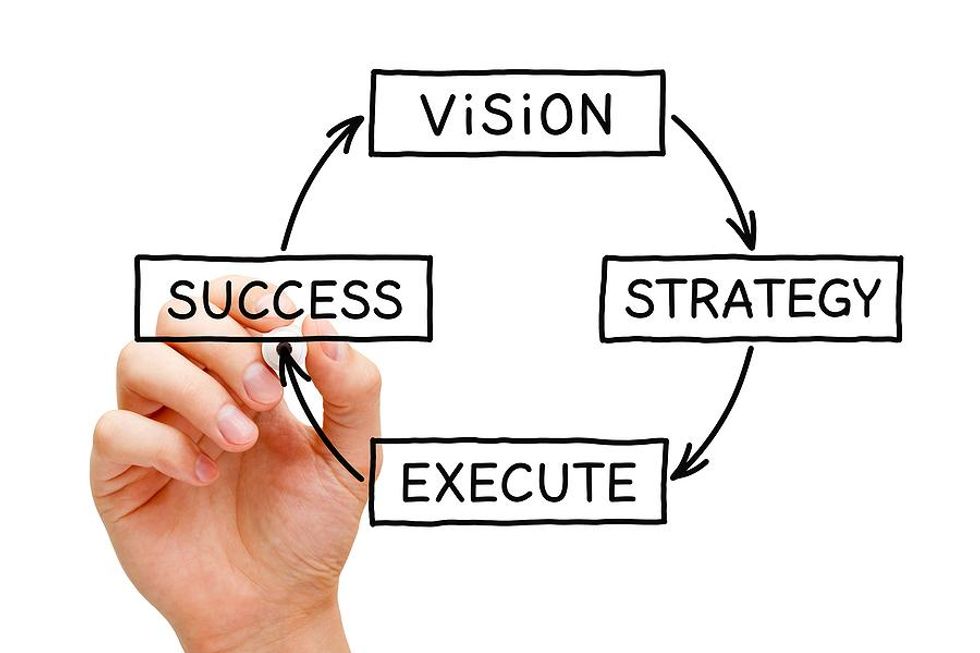Being prepared for common financial analyst interview questions is important if you want to get hired. But interestingly enough, many candidates go into the hiring process without realizing how unprepared they actually are!

This list of common interview questions for financial analyst positions will help you find the job you''ve always wanted.
1. Do you prefer to work alone or in a team?
There’s more variety in financial analyst positions than most people realize. While many view this job as a “lone wolf” scenario, that’s not always true. There may be instances when you work with others in a collaborative environment.
For example, larger companies may have two employees developing different business models. While you work independently, you must combine data to create an overall business model you can present.
There’s no universal right or wrong answer. But hiring managers may look for certain preferences based on the company’s needs.
If the financial analysts for the company often work together, saying that you prefer to work alone may lead the hiring manager to believe that you’re not the right fit.
The best thing you can do is research the company and role. Figure out how financial analysts work in the organizations you’re interviewing for so that you know what to expect. If you can’t find that, emphasize your willingness to adapt.
Consider providing real-world examples of why you prefer to work one way over another. End with a statement saying that you’re willing to work in both solo and collaborative environments and that you’re capable of succeeding in both.
2. Describe a time when you had to give a presentation on financials.
Presentations are a big part of being a financial analyst. In this role, you’ll present information to high-level executives and relevant parties. This interview question for financial analysts is designed to see how you would perform when given that responsibility.
Not everyone is a natural-born public speaker. But if this job requires frequent presentations, you must show hiring managers that you can get in front of decision-makers and present your data confidently.
Provide an example and go into detail about a past presentation. Set the stage, walk the interviewer through your responsibilities, and tell them how it went. Don’t forget to touch on the type of presentation you made and what information it contained.
You want to paint an accurate picture of your presentation skills and help the interviewer understand your experience.
3. Explain your approach for developing an investment strategy to present to management.
This financial analyst interview question is a great opportunity to showcase your skills and walk hiring managers through your work process. Developing an investment strategy is a challenging task. It involves extensive research and an ample understanding of the company’s core goals.
Hiring managers already know that you have set processes for approaching investment recommendations. This is your chance to talk about them!
Go into detail about your thought processes and what you do to prepare presentations about investment strategies. Discuss what information you’d collect to make your recommendations and what stipulations the organizations must make.
The best answers provide a mix of collaborative and solo processes. Talk about who you would partner with, what you would do alone, and how you put everything together to develop an investment strategy that makes a difference.
4. What tools do you use most often?
Questions about the tools you use as a financial analyst often come up during job interviews. This position requires many tools. There are specific software platforms, and analysts use things like comparative financial statements, benchmarking analysis and more.
This question aims to gain more insight into what technology you use and how it can benefit the company. It will be important for you to know how to use the most popular tools. Not knowing how to use tools the employer uses can hurt your chances of getting a job offer.
This is why it''s a good idea to research the particular role you''re applying for and reviewing the job description. Many job postings include tools hiring managers want candidates to have proficiency with. You can familiarize yourself with the preferred tools and mention that in your interview.
Explain what tools you prefer to use and why. Explain why you use them and how they’ve benefited you in your career as an analyst.
5. What is your greatest strength as it pertains to your role as a financial analyst?
The job of a financial analyst requires many skills and capabilities. Not everyone is up for the task, and hiring managers want to know what you have to bring to the table.
When answering this interview question, talk about your greatest strength and how it relates to your job. It doesn’t have to be about a specific skill set. You can discuss traits like discipline or time management.
The goal is to highlight how that skill benefits you in your career. Provide examples of how it sets you apart from others in the field and how you harness those strengths to succeed.
6. What’s included in the EBITDA and what isn’t?
Here’s a tough interview question that people outside the financial world would not know how to answer. It’s a job-specific question that gauges your industry knowledge.
EBITDA is an acronym for “earnings before interests, taxes, depreciation, and amortization.” It’s a measure of a company’s financial performance.
To answer this financial analyst interview question, you could say that it’s an organization’s net income without the impact of interest income, expenses related to debt instruments, depreciation, amortization, etc.
It’s always a good idea to brush up on EBITDA and other related financial topics before heading into your interview. You can bet that difficult questions like this will come up.
7. What kind of financial statement do you think is the most important when reviewing a company?
This question for financial analysts is an opportunity to gain additional insight into your industry knowledge. It can come in many forms. For example, interviewers might ask you to walk them through an income statement or cash flow statement.
Alternatively, they might ask a more open-ended question like this.
Your response is a chance to prove that you understand financial statements. More importantly, it shows you know how and when to use them.
The key is to explain why you prefer it. Discuss why you believe it’s the most important resource. You can also detail what situations you’re most likely to use it in and why you choose to do so over other options.
8. Share a time when you’ve had to operate under a tight deadline.
You’ll encounter many tight deadlines throughout your career as a financial analyst. This work isn’t quick or efficient, so you must find ways to manage your workload and time.
The thing that interviewers want to know is how you respond to these stress-inducing situations. Do you use it as a driving force to work harder? Or do you crumble under the pressure, cut corners, and deliver shoddy work?
Of course, they prefer to hear about the former!
Everyone experiences stress. When you respond, you want to reassure hiring managers that you know how to manage it and navigate tight deadlines.
Refer to a stressful situation from your past. Tell a story and emphasize the problems you had to overcome. Detail what you did to meet that deadline.
It’s normal to have some past failures and missteps, but always focus on positive stories when possible. But if you have experienced issues meeting deadlines in the past, don’t be afraid to emphasize what you learned and how you’ve improved your processes since.
9. Why do you want to be a financial analyst?
This might seem a bit unnecessary, but it often comes up in interviews.
It’s not a trick question. Interviewers genuinely want to know why you got into the field. Why? It’s about understanding your career goals.
They want to know why you’re there and how you plan on moving your career forward. Many people step into positions knowing it’s a temporary move. Employers don’t want that.
They prefer to hire people who will be in it for the long haul and grow with the organization. If you say something that implies that this career is only a stepping stone to something else, they may opt for another candidate.
Reflect on why you want to be a financial analyst. Tell the interviewer what initially sparked your interest, why you enjoy the work, and perhaps how it aligns with your values or interests.
10. How are cash flow statements impacted by an increase in accounts receivable?
This situational interview question for financial analysts is entirely hypothetical, but it helps the interviewer understand how prepared you are for this discussion. It’s also another question that gauges your general knowledge and overall financial aptitude.
There are correct and incorrect answers here, so it’s wise to brush up on the fundamentals if you’re worried about providing a wrong answer.
Accounts receivable refers to money owed by debtors. When there’s an increase in accounts receivable, cash flow decreases because those debts aren’t paid yet. Not only will cash diminish, but so will overall company value and assets.
If the accounts receivable continue to increase, the company could eventually run out of money!
11. How does increased debt influence the income statement of a company?
Here’s another example of a knowledge-based question. You’ll likely encounter many of these.
Fortunately, this one isn’t too difficult, and your existing knowledge of finance should be more than enough to help you answer confidently. But as always, don’t hesitate to dust off those old textbooks if necessary.
When a company’s debt increases, the net income, or profit, listed in an income statement decreases. They’re directly proportionate, making it important for companies to be wary of how much debt they take on.
12. Why do you want to work here?
Employers often ask about why you’re there. They want to know what about this particular company attracted you to the opportunity.
There are many ways to take your career as a financial analyst. Several unique roles exist, so you need to know why this one stood out to you.
Honesty is the best policy but refrain from saying anything that would imply you’re there for the wrong reasons. For example, don’t say that pay was your biggest motivator!
Instead, focus on what you know about the company. Research the organization to learn about what it does, how it operates, and what values it holds. Use that as your foundation.
You can also refer to the position and how it plays into your career goals. Discuss why this position is for you and continue to reiterate your interest in getting the job.
13. How do you handle conflicting opinions in the workplace?
Conflicts arise in the workplace all the time. That’s what happens when you put people with unique personalities together. You might clash with a supervisor or disagree with someone you’re collaborating with on a presentation.
Whatever the case, you must know how to handle conflict maturely and move forward. This financial analyst interview question gets asked because interviewers want to see how you play with others. No one expects you to get along with everyone.
However, employers expect you to act maturely, resolve problems without bringing in a mediator, and remain productive.
When answering, refer to an experience from your past when you didn’t see eye to eye with a colleague. What caused the disagreement, and how did it impact your work?
Emphasize what you did to move forward. Focus on self-mediation and problem-solving. Hiring managers love hearing you can work with others despite disagreements.
14. Share a time when you made a mistake during your analysis and what you learned from the experience.
Financial analysts aren’t perfect. Everyone makes mistakes. You might miss a few assumptions or create a dysfunctional model that doesn’t deliver the expected results.
That’s alright, and hiring managers know that mistakes happen. Interviewers are looking for honesty and positivity in your answer.
They want you to talk openly about a mistake you made in the past. Preferably, choosing a moment that didn’t create a disaster for your company would be best.
Talk about the problem, the mistake you made, and what happened as a result of this.
Then, focus on what you learned. The best responses are the ones that spend more time talking about the takeaway. Hiring managers want to hear that you learned from that mistake and took steps to never repeat it.
That shows that you’re open to continued development. You owned up to that mistake and used it as a catalyst to improve your skills.
15. What would you do if you found a discrepancy when reviewing statements for a company?
You can make mistakes during your career, and the same goes for others!
The great thing about being a financial analyst is that you often have the opportunity to discover and identify discrepancies in financial statements before they cause too much trouble. However, many are too hesitant to speak up.
What hiring managers want to hear is that you’re detail-oriented enough to find problems and have the confidence to bring them to the attention of others.
If you have a similar experience, you can talk about what you did. Otherwise, treat it like a hypothetical.
You can say you’d review the statement to ensure the discrepancy is an issue. Then, you could see what solutions correct the problem before bringing it to a supervisor. Solving the problem first shows initiative and proves that you’re capable of helping the company avoid disaster.
16. How do you develop a sales report?
Financial analysts often deal with sales reports to give leaders an accurate picture of the company’s performance over a given period.
Like the interview question about developing an investment strategy, this one is about detailing your processes. Hiring managers want to know what you do, how you arrive at your finished product, and why you take the steps you do. It’s more about the process than the final report.
Everyone has their unique way of doing things. The most important aspect of your response should be the explanations. Walk interviewers through your thought process.
Whether you use a specific tool or like to collaborate with others for particular data, always provide your reasoning. It helps employers envision you in the role.
17. Do you have any industry licenses or certifications? If so, how have they helped you?
Many licenses and certifications exist for financial analysts. For example, you can earn certifications like a Chartered Financial Analyst (CFA), Chartered Financial Consultant (ChFC), or Certified Funds Specialist (CFS). These certifications require additional study but can make you more competitive in the job market.
There’s a good chance that hiring managers are already familiar with your certifications and licenses. It’s already on your resume! If you don’t have any, you might consider getting some in the future.
Whatever the case, the goal is to talk about what those certifications could do to benefit your career. Discuss what skills you learned and how those additional qualifications have made you a better financial analyst.
Hiring managers prefer to see those extra qualifications because it shows dedication to your craft. It also proves that you’re capable and willing to invest in continued professional development.
Conclusion
Now that you know the financial analyst interview questions that get asked the most, it''s time to do a little practice. Run through each of these and focus on any that give you trouble.
When you''re done, you''ll be ready to get hired!
The post 17 Common Financial Analyst Interview Questions & Answers appeared first on Career Sherpa.









